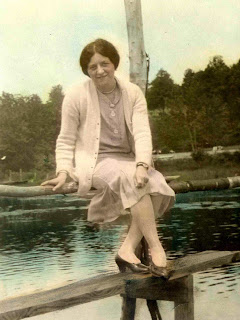It is difficult to
identify the exact moment when I began my life as a jock watcher. Most likely
it began some time in the tenth grade at Heights High.
On our first day at school, there was an orientation in the auditorium, and the first thing I noticed were
these big muscular Arian looking men in the front, looking extremely important.
They each wore a black cardigan
sweater with a large gold H, meaning they were athletes, rewarded with the
letter for their physical prowess.
I decided that I really
admired these guys, and perhaps at that moment I became a “jock watcher,” better described for me as a sports writer.
It made sense. There was
no way that I was going to be one of
them. I wouldn't be invited to their parties, certainly not their fraternities,
and wouldn't have a prayer with their girlfriends. They were in another world, and I knew
it that first day at Heights.
But as a writer I could
become close to them. (As close as a little five foot five Jewish kid with glasses could ever become.)
So I signed up to be a
sports writer for the school paper, The Black and Gold, a pivotal point in my young
life.
My heterosexuality was
pretty much limited at that time to Virginia Hill, a tall slender, blue eyed
blonde, who was a hall guard three days a week. Each of those days, I
made of point of walking slowly past her, smiling and moving on. At first she
didn't notice, but as time wore on she began to smile at me, and I smiled back.
That was pretty much it for the tenth grade.

Back to those guys up front in the auditorium on the first day. One of them was a fellow named Sam Sheppard.To my mind, he was the classic picture of the ultimate jock; handsome and muscular. And standing next to him was his attractive girlfriend, Marilyn Reese, whom he would later marry.
Sam was a classic
athlete. A star on the basketball team, quarterback in football, and a runner
on the track team that won the state championship in Columbus. My career as a jock
watcher in high school gained me some recognition, and even Sam would call me
by my first name. “Hi Bud!" he would say.
I would say "Hi Sam!" as
though we were real pals. That gave me the stature at Heights that I longed
for.
My next encounter with Sam Sheppard came a number of years later when I was working on the city desk
at the Cleveland Press one Fourth of July. The call came from the police
reporter that the body of Marilyn Reese Sheppard had been found in her bed,
brutally beaten, bloodied, and partially dismembered by blows from a sharp
instrument.
 Sam had become a surgeon in his father's hospital on the lake.
Sam had become a surgeon in his father's hospital on the lake.
 Sam had become a surgeon in his father's hospital on the lake.
Sam had become a surgeon in his father's hospital on the lake.
Sam protested his
innocence and claimed that a bushy haired stranger had entered the house,
fought with him, and then murdered Marilyn. So much for hero worshipping. The
rest is history.
As I progressed in my
young life as a jock watcher, I signed on as a sports writer at the University
of Michigan Daily, after my stint in WW II. This was the big time. And I became
totally immersed in the ethos of big time sports.
There would be none of
this fighting for seating in Michigan's gargantuan 100,000 seat arena, the
largest in the western world. There was greatness here, and I planned to become
an integral part of it. Early on I arranged for my press pass and entered into
the enormous press box high above the field, and of course high above the
ordinary fans. They served hot dogs and coffee there, for free. Everyone had a
seat with their name on it.
I pretended to know the
game and its intricate ins and outs. Michigan executed its plays from the single
wing formation. Half back Bob Chappuis as the passer, became famous. And
coincidentally, he also had a girlfriend named Marilyn. I worried about her in
later years.
By my senior year
Michigan had won two national championships and made it to two Rose Bowls, and
I went with them.
On campus some people
noticed me in class. Once, my philosophy professor asked me who I liked for
the upcoming Ohio State game. I would puff up and respond, “I like the
Wolverines, but we will have to wait and see to see. Pete Elliot has a bruised
knee," I would tell the philosophy prof. As if really knew.
"Cogito ergo sum."
"I think, therefore I am”, I
whispered to myself, feeling certain that I now would get at least a B in this
intellectually challenging class.
As for my jock watching,
after graduation I gave it up to become a real reporter on a real newspaper, only
once returning to Ann Arbor for a football game in 65 years, more than half a
century.
Now on football
Saturdays I can be found at The Fox and Hound Tavern at Eastgate, frantically
cheering on the Wolverines along with “ordinary alumni," rarely recognized
as the storied jock watcher of another mighty era. No press pass, no free hot dogs,
no adoring sorority girls.
Just this little guy
struggling to bring home a winner for another generation.































